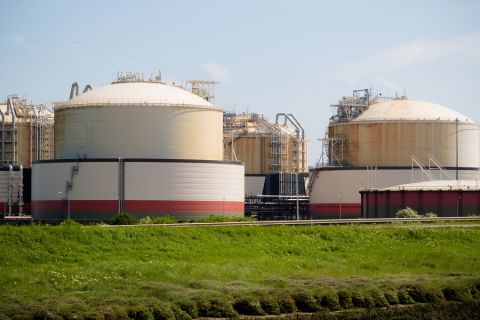
(Source: Hart Energy; Shutterstock.com)
[Editor’s note: The views reflected in this article are the views of the author and do not necessarily reflect the views of the global EY organization or its member firms.]
Amid an already challenging environment (as discussed in early March), the oil and gas industry has been dealt a concurrent blow—the breakdown of an OPEC+ arrangement impacting supply as well as a simultaneous drop in both oil demand and global productivity due to the coronavirus pandemic.
In reaction, many oil and gas stocks are down more than 30% over the past month—with some falling even more—and companies across the value chain are making fast and aggressive moves to slash spending. Capital discipline is now more important than ever.
Although the industry learned a lot during the last downcycle, oil and gas companies won’t have the same access to capital and will likely only be able to invest the cash they generate. In efforts to both survive and position themselves for future success, companies are responding by:
1. Managing liquidity
Oil and gas companies need to survive to have a chance to profit from a future recovery. As a result, many are focused on short-term cash forecasting with much more aggressive emphasis on working capital and liquidity management. Companies can build and secure liquidity through a variety of tactical responses: reducing operating expenditures, deferring capital spending and effective cash tax management—i.e., maximizing cash value items and deferring cash tax payments. This focus is likely to continue, though over time it will probably move from being labor-intensive to more process-driven, digitized and automated.
More heavily leveraged companies have already started engaging with their debt providers. Creditors will have limited capacity to absorb losses, and companies that approach them first with the most realistic plans are likely to get the best deal. Companies need to begin a proactive dialogue with creditors about potential debt restructuring now.
2. Protecting revenue streams
Every market dislocation creates a winner and loser in long-term contracts, and the losers will be eager to find a way to rework their contracts. Companies should look carefully at force majeure clauses in contracts, as the provisions can help protect revenue streams and reduce obligations. LNG contracts, for example, have already become prime targets for renegotiation, and sometimes the mere threat of arbitration is enough to encourage the party on the right side of the deal to come to the table.
Given the global situation, it is likely that every material contract will be the subject of discussion in the months to come. The best defense might be a good offense. Companies should start the process knowing in advance where the rest of the market is, what their own company can afford to do, what competitors might do and what the counterparty thinks is available elsewhere.
3. Reducing costs with digital and shared services
Digital technology has made significant advances since the last downturn, and there are new cost-reducing activities available. Resistance to these technologies has evaporated in the current environment, as companies need to unlock greater efficiencies. There are great potential quick wins in tools that create a “single source of truth” across the oil and gas value chain. Inefficiencies creep in when there are uncertainties about exactly what the facts are or when there is unnecessary cost or time involved in communicating information across the organization. That principle is especially important in complex processes such as well planning, maintenance scheduling and crude, product, gas and derivative trading.
Capital scarcity makes fixed costs and one-time investments, no matter how economical or beneficial, problematic. Many oil and gas companies still have potential to turn fixed costs into variable costs with shared services, management and outsourcing solutions.
4. Consolidating
Not every company will survive this cycle. The market is overcapitalized in the aggregate, and there are two ways to improve economics in that type of environment: reduce capacity or competition and reduce costs. Access to financing and the need to restructure debt will turn up the urgency on the next wave of consolidation. Further, well-capitalized oil and gas companies may be positioned to add solid, distressed assets to their portfolio while holding down costs—provided they proceed with caution.
Any consolidation process begins with a surveillance process. Who has the higher cost structure? Where’s the synergy with the various pieces of acquisition or merger targets? How does it fit with what is already owned, and how does a target’s portfolio complement or fill gaps?
Capital providers will be ruthless in questioning whether they are the best owner of the assets they operate and will be much more dispassionate in reviewing consolidation options.
What’s next?
The next few quarters will be challenging. OPEC+ production discipline is gone for the near term. Demand has been cut significantly, and finding physical homes for production is becoming a real challenge. Companies need to proactively examine their liquidity situations, consider creative deal structures or opportunities, and have a willingness to make difficult decisions around their capital management. Throughout the process, they need to communicate consistently across their stakeholders and be upfront on the issues they are facing. Ultimately, leaner companies will emerge out of this difficult time, and the industry will become stronger and more resilient.
Andy Brogan, partner at Ernst & Young Global Ltd. and EY Global Oil and Gas Leader
As the EY Global Oil & Gas Leader, Andy oversees 10,000 industry professionals worldwide. He has worked with a range of clients in the sector, from the largest oil majors and national oil companies to governments and independents, through an EY career spanning more than 25 years. Andy has helped with successful mergers, acquisitions and partnerships and supported clients to raise capital toward ongoing growth and transformation across the energy and resources sectors.
Kris Anderson, principal at Ernst & Young LLP and EY Americas Oil and Gas Independents Leader
Kris Anderson serves as a Principal in Ernst & Young LLP’s Transaction Advisory Services practice in Houston and is the EY Americas Oil & Gas Independents Leader. Kris serves clients across the energy sector with an emphasis on valuation and corporate finance issues related to mergers and acquisitions, divestitures, restructuring and reorganization, and strategic decisions.
David Johnston, partner at Ernst & Young LLP
David Johnston is a transactions partner responsible for providing valuation services to clients in the oil and gas and mining and metals sectors for financial and tax reporting purposes. As a trusted advisor, he currently works with some of the biggest companies in oil and gas as they weigh strategic executions in the current energy market.
Recommended Reading
Exxon’s Payara Hits 220,000 bbl/d Ceiling in Just Three Months
2024-02-05 - ExxonMobil Corp.’s third development offshore Guyana in the Stabroek Block — the Payara project— reached its nameplate production capacity of 220,000 bbl/d in January 2024, less than three months after commencing production and ahead of schedule.
Venture Global, Grain LNG Ink Deal to Provide LNG to UK
2024-02-05 - Under the agreement, Venture Global will have the ability to access 3 million tonnes per annum of LNG storage and regasification capacity at the Isle of Grain LNG terminal.
What's Affecting Oil Prices This Week? (Feb. 5, 2024)
2024-02-05 - Stratas Advisors says the U.S.’ response (so far) to the recent attack on U.S. troops has been measured without direct confrontation of Iran, which reduces the possibility of oil flows being disrupted.
McKinsey: US Output Hinges on E&P Capital Discipline, Permian Well Trends
2024-02-07 - U.S. oil production reached record levels to close out 2023. But the future of U.S. output hinges on E&P capital discipline and well-productivity trends in the Permian Basin, according to McKinsey & Co.
EIA: Oil Prices Could Move Up as Global Tensions Threaten Crude Supply
2024-02-07 - Geopolitical tensions in the Middle East and ongoing risks that threaten global supply have experts questioning where oil prices will move next.





